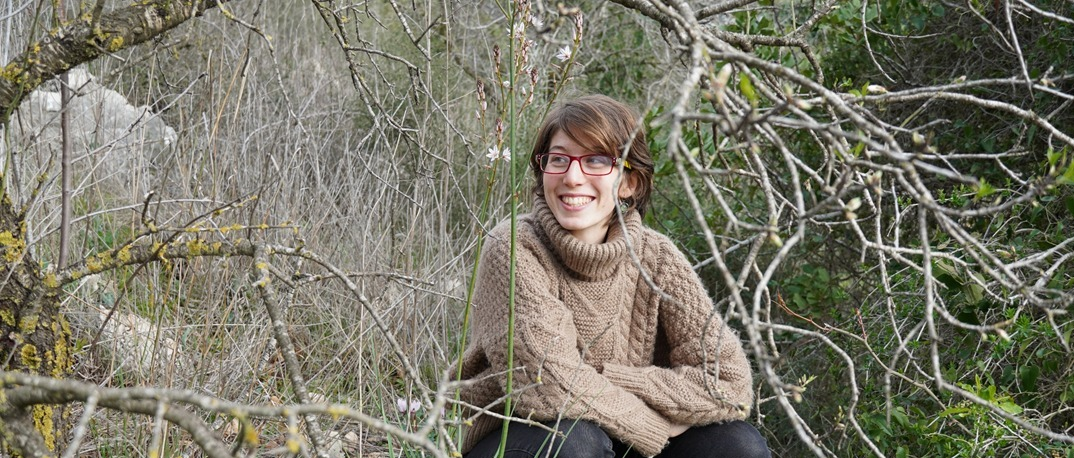
From the Middle East to Finland and Back Again – Experiences of International Research
When I first moved to Finland to begin my PhD research about the concept of religiosity in law, I hadn’t expected to rediscover my Middle-Eastern-ness so strongly. I came wanting to become acquainted with a country with feminist foreign policy, an academic culture different from my own and more adept in fields of study of religions and of philosophy, the European North, a Scandinavian culture, the serene traditions of being in nature, and to feel in my bones the sub-artic climate. These did indeed manifest greatly, and also brought with them experiences that I didn’t foresee. Alongside the Finnish immersion and very different from it, was an underlying thread which grew and became more apparent. The more I met with European people, culture, perceptions, ethos, and research, the more I became acutely attentive to my otherness in these realms – and the re-found belonging in my meetings and discussions with other Middle-Easterners and North Africans in Finland.
This process of re-localisation was an eye-opening journey in both my personal life and for my research. Far away from my home and my language, I found home with these other researchers and students from Egypt, Iran, Morocco… There was an affinity between us, an understanding of the complexities we contend with in our home cultures, specifically as religious women or women in societies that intertwine with religion in explicit ways. From our common experiences of the mix of cultures and influences which is the Levant, we discussed together the hopes and potentials that our complex ways-of-being can bring for social justice and better seeing and understanding Others.
Furthermore, we were outsiders to the Finnish and European cultures. The difference in our perspectives and experiences from the society around us opened our eyes to insights far beyond what we had come to learn from these Northern and Western schools of thought. Our foreignness enabled us to appreciate and comprehend much more profoundly the gifts we bring from our Levantine heritage. The gift of mixes of people and religions living woven with each other as a mosaic. The gift of movement and fluidity entrenched in us through histories of conquests and migration – that resist so many attempts at limiting it into rigid boarders or labels (Middle East, Levant, MENA, Eastern Mediterranean, South-Western Asia…). Even the gift of knowing war and hardship and violence – so as not to be blinded to erroneously think that these phenomena are simplistically judged. This closeness between us also revealed to us our gift of blurring boarders. Of defying the political games that decree an animosity between us and that exaggerate our differences instead of celebrating our similarities.
From these rooting encounters, I reflected back on my research about the definitions of religious communities and minority rights in multicultural legislation. Doing so, I discussed these experiences with my supervisors in attempts to make sense of the confusion of thoughts beginning to take form. With them I realised that I’m seeking to change the discourse of “minorities” from a classical literature of dichotomous “otherness” that conceptualises people as distinctly pertain either to a secluded indigenous group or to the neutral hegemon or to a demographically minor and extremely alien immigrant population. The Middle East and North Africa region has a different historical, social, and cultural mosaic. It shows the need to stop thinking in delineated binary terms of majority/minority, but rather to imagine other concepts of complex collectives, diversity, fluidity, and change. In the MENA context, “minority” doesn’t mean foreign or new, small numbers also do not necessarily mean political disempowerment. Instead, the understanding of the social, legal, and political positioning of various groups of the population depends on specific contexts and complicated developments.
My time in Finland, researching with the Donner Institute, opened for me questions about the meaning of belonging and of identity. It led me to search for new paths to understand and to mould these in the real lives of people who’s experiences and sense of self do not align with any flat singular border. Through connecting with my Levantine sisters when we are far away from home, a door was opened to begin complexing the prevalent conceptualisations of boarders, definitions, differences, and sharedness. Thus, hopefully, to be able to better understand and better learn from the lived realities of complex borders for a more shared society, also for the changing European demographic.
Sagy Watemberg Izraeli is a cotutelle Doctoral Researcher in Study of Religions at Åbo Akademi University and the Faculty of Law at Bar-Ilan University, having received her BA in Philosophy, Politics, and Economics from the Hebrew University of Jerusalem. Her doctoral research asks what defines membership in religious communities in multicultural contexts, from the internal perspective of the communities themselves? This research investigates the paradoxical situation of religious women as members obligated to communities’ norms but lacking in legitimacy to claim norms. It will offer a novel conceptualisation of membership in religious communities in multicultural contexts by providing an analytical model for researching the paradoxical situation of religious women in differing religious communities and states.